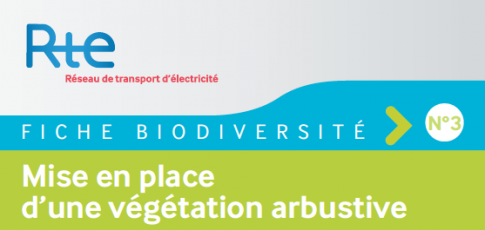News
2013-12-01
Training sessions with RTE staff members
Another mission of the LIFE ELIA project : training
Besides management plans and ecological restoration of natural habitats found under the woody stretches of overhead power lines, training the staff of ELIA (Belgian Transport System Operator) and RTE (French Transport System Operator) on biodiversity issues is a major mission of the LIFE ELIA project.
For electrical safety can be reached along with biodiversity enhancing, various training modules have been developed. The first phase took place during this summer with training modules for the ELIA staff responsible for of high-voltage lines monitoring.
RTE internal training session on biodiversity
RTE tackles biodiversity at different levels and in several training modules for its staff ... but also for non staff members !

Recently, a member of the LIFE ELIA team took part in two training sessions organized by RTE. One of them, entitled "Impact of RTE works on biodiversity" gathered during 3 days project managers, heads of environmental regional, vegetation managers in the electrical corridors, sites controllers. In their daily work, all these participants are more and more confronted to biodiversity issues, and have to take it into account.
The topics covered in this training concerned :
- biodiversity (definition, roles, values...)
- the existing set of laws related to nature conservation (protection of species and habitats, Natura 2000...)
- means already implemented and to be implemented by RTE to promote biodiversity
All these topics were exemplified during field trips.
Partnerships with local stakeholders : key to success !
Given in three regions, the particularity of this RTE training is that it is organised in partnership with external specialists, including Regional Natural Parks (PNR) whose mission is to contribute to the harmonious development of biodiversity and human activities. Besides knowledge in environmental issues, PNR have solid experience in implementing dialogues and partnerships.
The contribution of these external stakeholders is important because it allows participants to connect theory to practical know-how.
A training open to non-RTE participants
Another feature of this training is that it is accessible to a limited number of non-RTE participants, among them the Regional Direction for Environment, Planning and Housing (DREAL). The presence of non-RTE participants demonstrates once again the existing needs of sharing environmental knowledge. Protecting the environment is everyone's business.


